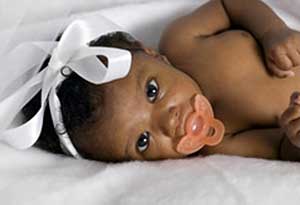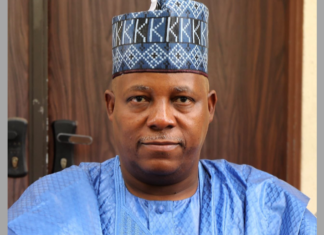Babies made from two women and one man have been approved by the UK’s fertility regulator.
The historic and controversial move is to prevent children being born with deadly genetic diseases.
Doctors in Newcastle – who developed the advanced form of IVF – are expected to be the first to offer the procedure and have already appealed for donor eggs.
The first such child could be born, at the earliest, by the end of 2017.
Some families have lost multiple children to incurable mitochondrial diseases, which can leave people with insufficient energy to keep their heart beating.
The diseases are passed down from only the mother so a technique using a donor egg as well as the mother’s egg and father’s sperm has been developed.
The resulting child has a tiny amount of their DNA from the donor, but the procedure is legal, ethical and scientifically ready.
‘Historic’
“It is a decision of historic importance,” said Sally Cheshire, chairwoman of the Human Fertilisation and Embryology Authority (HFEA).
“This is about cautious go ahead, not gung-ho go ahead, and there is a long way to go.
“I’m sure patients will be really pleased by what we’ve decided today.”
But some scientists have questioned the ethics of the technique, saying it could open the door to genetically-modified ‘designer’ babies.
The HFEA must approve every clinic and every patient before the procedure can take place.
Three-person babies have been allowed only in cases where the risk of a child developing mitochondrial disease is very high.
Clinics can now apply to the HFEA for a licence to conduct three-person IVF.
Donors needed
The team at Newcastle-upon-Tyne Hospitals NHS Foundation Trust and Newcastle University is expected to be the first to be granted a licence.
It aims to help 25 couples every year.
Prof Mary Herbert, from the Newcastle Fertility Centre, said: “It is enormously gratifying that our many years of research in this area can finally be applied to help families affected by these devastating diseases.
“Now that we are moving forward towards clinical treatments, we will also need donors to donate eggs for use in treatment to prevent affected women transmitting disease to their children.”
Prof Doug Turnbull, the director of the Wellcome Centre for Mitochondrial Research at Newcastle University, said: “We are delighted by today’s decision.
“We will also provide long-term follow up of any children born.”
NHS England has agreed to fund the treatment costs of the first trial of three-person IVF for those women who meet the HFEA criteria, as long as they agree to long-term follow up of their children after they are born.
How does it work?
Mitochondrial disease is caused by defective mitochondria – the tiny structures in nearly every cell that convert food into useable energy.
One in 4,300 children are born with such severe symptoms they develop muscle weakness, blindness, deafness, seizures, learning disabilities, diabetes, heart and liver failure. It is often fatal.
The aim of the procedure is to get the healthy mitochondria from the donor.
But mitochondria have their own DNA, which is why resulting children have DNA from three people.
.BBC














